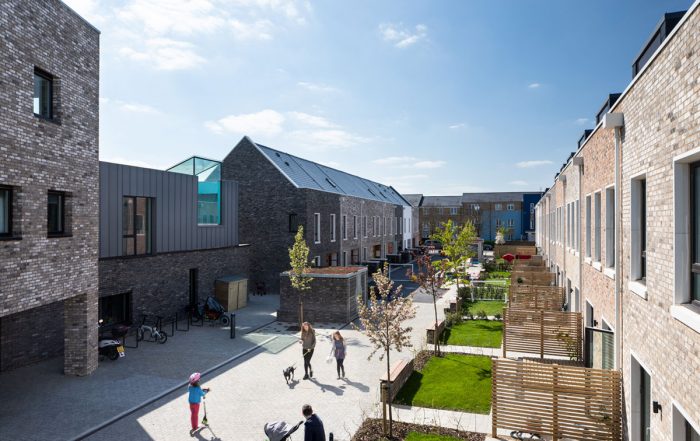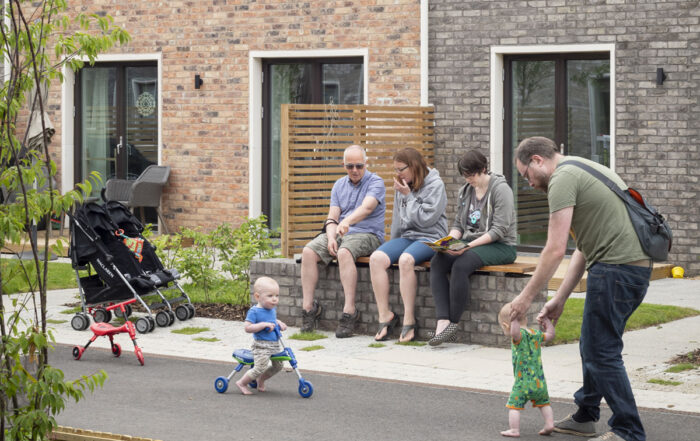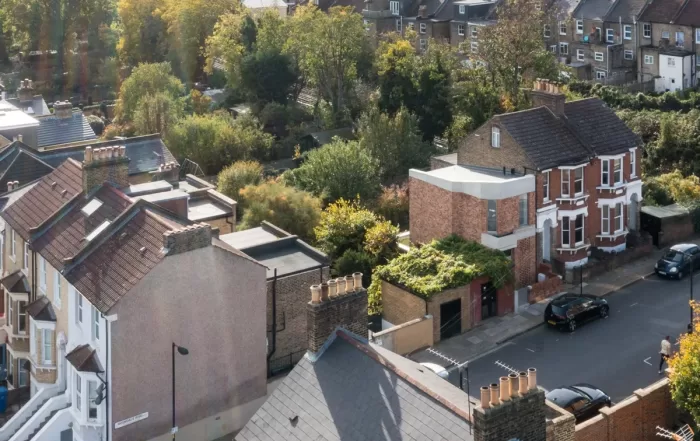28th February 2024
JONNY ANSTEAD JOINS LEVELLING UP SELECT COMMITTEE INQUIRY ON CHILDREN, YOUNG PEOPLE AND THE BUILT ENVIRONMENT.
28th February 2024
JONNY ANSTEAD JOINS LEVELLING UP SELECT COMMITTEE INQUIRY ON CHILDREN, YOUNG PEOPLE AND THE BUILT ENVIRONMENT.
Share
On 26th February, TOWN Director Jonny Anstead gave evidence to a Levelling Up, Housing and Communities Select Committee inquiry into Children, Young People and the Built Environment. In giving evidence to the Committee, Jonny, who is also Chair of the Quality of Life Foundation, was joined in the session by author and child-friendly cities advocate Tim Gill and Dinah Bornat of ZCD architects, Jo McCafferty, director of Levitt Bernstein architects, planner Sarah Scannell at Birmingham City Council.
Jonny described a wider quality issue in new developments, referencing the 2020 Housing Design Audit for England by the Place Alliance, saying that it had found that “new housing development across the country was overwhelmingly mediocre or poor”. It identified a range of problems, including “design of highways, layout of bins and parking, a lack of character of place, including green spaces, design of streets and a lack of walkability”.
“It’s no coincidence,” Jonny said, “that those are all the same kind of issues that we’re talking about in determining whether a place is good or not for children”.
“The planning system requires us to think more about bins than it does about children’.”
Jonny pointed to the lack of expectation on developers to engage with the needs of children and young people in a nuanced and qualitative way, noting that developers are encouraged to adopt a ‘tickbox approach’ that reduces the needs of children into the provision of play areas which are cheap, simple to incorporate into standard housing estate layouts and quick and easy to deliver, despite this approach falling short of genuinely supporting children’s play, development and independence.
He went on to describe the barriers for those, like TOWN, seeking to create more child-friendly developments:
“For those of us who do wish to do more, we hit real challenges. The kinds of things that we’d be looking to do would be around reducing the dominance and impact of cars in a neighbourhood, creating safer streets where children can play, where there’s a sense of independence, where children have the ability to play out on the doorstep. The path of least resistance is to create an environment that is very good for refuse and highways, but which is very poor for children.”
“Developers – and the agents that advise them – see risk in doing things differently.”
Jonny pointed to the structure of the housebuilding industry as being central to the problem, drawing on a report published on Monday by the Competition and Markets Agency that highlighted serious concerns about the housebuilding market. He argued that the structure of the market – whereby around half of new homes are delivered by the ten largest housebuilders – means that there is both a lack of innovation, and a lack of competition on quality, and that this feeds directly into the shortcomings of the built environment in terms of children and young people.
The panel urged the government to take action, creating a more demanding climate for the development industry, placing more expectation on developers to invest in infrastructure and placemaking measures for children, and raising the general standard across industry, thereby enabling good practice to compete more effectively. They collectively highlighted the crucial need for more capacity in the planning system to help to get the best out of developers, setting more granular and nuanced parameters, based around outcomes for children, alongside guidance on child-friendly planning in the National Planning Policy Framework.
Jonny’s contribution to the evidence session reflects the thoughtful environment created for children at Marmalade Lane, where dedicated spaces for children, support systems for families and a safe, sociable, low-car setting, provide children with a greater sense of independence. This approach is in line with efforts to involve children and young people in the planning and design stages of other ongoing TOWN projects, such as Love Wolverton, where children are given the tools to help visualise their town’s future using Minecraft.

A Minecraft workshop with Blockbuilders for Love Wolverton.
For our project, Hartree in north east Cambridge, we have adopted an outcomes-based approach to engage with the needs of children and young people. In partnership with Tim Gill, we have developed a framework that operationalises the UN ratified Rights of a Child into practical, measurable masterplan recommendations, aiming to embed child-friendly placemaking at a strategic level.



